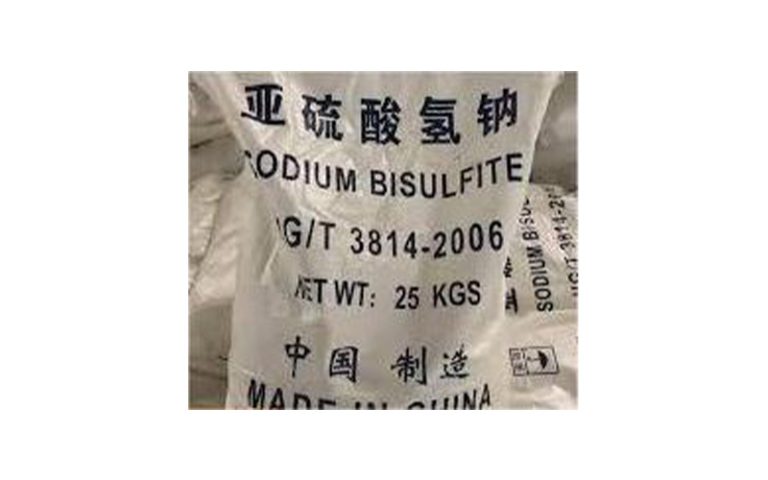Methanol Manufacturers:Yuhanchem China’s first-class manufacturer
Methanol plays a key role in countless industries, from energy production to pharmaceuticals. Reliable methanol manufacturers are essential for maintaining supply chains and meeting global demand. Yuhanchem has positioned itself as a trusted name in this space, known for quality and consistency. For businesses that depend on methanol, understanding what sets Yuhanchem apart could make all the difference.
Overview of Methanol Production
Methanol is a cornerstone chemical in modern industries, supporting applications in energy, pharmaceuticals, and more. Understanding its production and market trends reveals its growing significance and the role of methanol manufacturers like Yuhanchem in meeting global demands.
What is Methanol?
Methanol, also known as wood alcohol, is the simplest form of alcohol with the chemical formula CH₃OH. This clear liquid is both colorless and flammable, with a slightly sweet odor. As a highly versatile compound, methanol is a key ingredient in products like plastics, paints, adhesives, and fuels. Furthermore, it delivers significant environmental benefits when used in cleaner, alternative energy solutions like biodiesel and fuel cells.
To learn more about its properties and applications, check out this resource on Methanol.
Production Methods
Methanol production revolves around converting feedstocks into this useful substance through chemical processes. The two primary methods include:
- Natural Gas Reforming: This is the most common method for large-scale methanol production. It involves reforming natural gas to produce synthesis gas (syngas), a mix of hydrogen, carbon monoxide, and carbon dioxide. The syngas is then catalyzed to form methanol in a high-pressure reactor.
- Biomass Conversion: Methanol can also be produced from renewable sources like biomass. Biomass is gasified to create syngas, mirroring the process used with natural gas, but it offers a more sustainable approach because it taps into renewable resources.
Other evolving technologies, such as CO2 hydrogenation and green hydrogen, are gaining traction due to their environmental benefits. For a detailed breakdown of methanol production methods, visit How Methanol is Produced.
Global Methanol Market Trends
The methanol market is expanding, driven by demand across diverse sectors like energy and petrochemicals. Key trends include:
- Rising Demand for Energy Applications: Methanol is increasingly used as a fuel alternative in the marine and automotive sectors. Its lower emissions make it a preferred choice for meeting sustainability goals.
- Growth in Emerging Markets: Developing economies, particularly in Asia-Pacific, are investing heavily in methanol production to support industrial growth.
- Shift Towards Green Methanol: As industries seek carbon-neutral processes, green methanol derived from renewable sources is gaining popularity.
Despite these opportunities, challenges such as fluctuating feedstock prices and regulatory restrictions affect market dynamics. Stay updated on market performance with this report on Global Methanol Market Size and Trends.
Methanol’s role in industrial innovation and sustainability is undeniable, making it an essential subject for businesses and researchers alike.
Yuhanchem: Leading Methanol Manufacturer
Yuhanchem has carved a remarkable niche in the methanol manufacturing industry, standing tall through innovation, quality, and sustainability. Here’s a closer look at what makes Yuhanchem a trusted leader among methanol manufacturers.
Company History and Milestones
Yuhanchem began its journey in 1980, initially established to manufacture pharmaceutical raw materials. Over the decades, Yuhanchem expanded its operations, embracing chemical production and emerging as a prominent name in the methanol sector. Notable milestones include:
- 2000 – 2010: Transitioned into methanol production, increasing its market influence.
- 2023: Released a comprehensive sustainability report highlighting their industry leadership.
Yuhanchem’s commitment to quality and innovation has helped it gain trust and recognition globally, particularly as a methanol manufacturer catering to diverse industries.
Production Capacity and Technology
One of Yuhanchem’s defining traits is its expansive production capacity and use of advanced technology. The company operates highly scalable facilities, ensuring a flexible supply to meet client needs. Some key highlights include:
- Capacity: As stated in their company introduction, Yuhanchem boasts pilot production systems and an overall reactor volume of up to 12,000 liters.
- Tech-Driven Processes: Leveraging hydrogen reactors and cryogenic systems, their production setup can achieve high efficiency and scalability.
- Commitment to Quality: Facilities are designed to adhere to global standards, ensuring safe and clean manufacturing for methanol and related products.
These advancements ensure reliability in methanol supply chains while reducing operational downtimes.
Sustainability Practices
Yuhanchem places sustainability at the heart of its operations. With worldwide emphasis on eco-friendly practices, Yuhanchem sets an example through its robust environmental policies. Here are some initiatives:
- Facility Upgrades: According to their latest report, Yuhanchem is replacing outdated equipment with high-efficiency systems to reduce greenhouse gas emissions.
- Energy Efficiency: They consistently evaluate processes to minimize waste and energy use, supporting global environmental goals.
- ESG Practices: Their adherence to sustainability guidelines promotes Environmental, Social, and Governance management, ensuring accountability at every level.
These efforts reflect Yuhanchem’s commitment not just to profit but to fostering a sustainable future, making them a standout among methanol manufacturers.
Applications of Methanol
Methanol’s versatility makes it a critical component in numerous industries. From its role as a chemical feedstock to its use as an alternative fuel, methanol continues to impact global markets significantly. Below, let’s explore key applications across different sectors.
Chemical Industry
Methanol serves as a vital feedstock in the chemical industry, acting as a building block for the production of various chemicals. Its role is essential for manufacturing everyday products such as:
- Formaldehyde: Used in producing resins, adhesives, and coatings.
- Acetic Acid: Found in textiles, cleaning agents, and food additives.
- Methyl Methacrylate (MMA): A primary ingredient in acrylic plastics and glass substitutes.
Additionally, methanol is foundational in creating biodiesel through transesterification. This eco-friendly fuel alternative is a sustainable choice for reducing emissions. For more insight, visit Methanol Applications.
Energy Sector
As the world shifts toward greener energy solutions, methanol has gained traction as a sustainable alternative fuel. Its attributes make it a promising option for reducing carbon footprints:
- Cleaner Combustion: Emits fewer pollutants compared to diesel or gasoline.
- Renewable Production Potential: Can be synthesized from CO2, biomass, and other renewable sources.
Methanol’s versatility extends to powering marine vessels, boilers, and even cookstoves. Emerging interest in its use for hydrogen fuel production further highlights its potential. Learn more about its fuel applications at Methanol – Alternative Fuels Data Center.
Automotive Applications
Methanol also plays a role in the automotive sector as a cleaner, cost-effective fuel alternative. Here’s how it’s being utilized:
- Fuel Cells: Methanol fuel cells generate electricity with lower emissions, ideal for electric vehicles.
- Blending Component: Used in blending with gasoline to enhance combustion efficiency and reduce emissions.
Interestingly, methanol-fueled vehicles are gaining popularity in countries like China, showcasing its global appeal. You can explore further details in this report on Automotive Fuel.
Methanol remains an invaluable resource for driving innovation across multiple industries, adapting to both traditional and modern demands with ease.
Challenges Facing Methanol Manufacturers
Methanol manufacturers, including prominent names like Yuhanchem, face a dynamic set of challenges. Navigating these difficulties requires resilience, innovation, and strategic planning. Below, we explore some of the most pressing issues affecting methanol production and distribution.
Regulatory Challenges
Regulations significantly influence methanol production. Governments worldwide impose strict guidelines to ensure safety and environmental compliance. Here’s a snapshot of the key concerns:
- Environmental Compliance: Methanol production is closely monitored for its impact on air and water quality. Standards such as those outlined by the EPA control emissions and disposal practices.
- Occupational Safety: Handling and production of methanol can expose workers to health risks. Regulations like those in this safety manual require proper equipment and protocols to protect employees.
- Global Standards: Export-focused manufacturers must adhere to diverse regulations across countries. For instance, European and North American policies might differ significantly, creating compliance challenges.
Staying ahead of evolving regulations is critical, as non-compliance can lead to operational halts, fines, or reputational damage.
Market Competition
The methanol manufacturing industry is fiercely competitive. With major players striving for dominance, smaller and midsized manufacturers face immense pressure.
- Asia-Pacific Dominance: Countries like China and India lead global methanol production. Their large-scale facilities and lower production costs make them formidable competitors. Dive deeper with this market report.
- Growth of Green Methanol: Companies investing in sustainable methanol gain an edge, but the high cost of production poses barriers to entry.
- Price Pressures: Fluctuating prices in raw materials and demand across sectors often destabilize profits, creating a tough pricing environment.
To thrive, methanol manufacturers need to differentiate through innovation, efficiency, and sustainability while keeping pricing competitive.
Supply Chain Issues
Supply chain disruptions are a common challenge for methanol producers. From raw material shortages to logistical bottlenecks, the problems are multifaceted.
- Raw Material Availability: Natural gas, a primary feedstock for methanol, is subject to price and availability fluctuations. Green methanol faces even tougher challenges, as noted in this industry insight.
- Transportation Logjams: Shipping delays, especially for global exports, can interrupt supply chains and increase costs.
- Energy Demands: Methanol production is highly energy-intensive, making it vulnerable to rising energy prices or shortages.
Addressing these hurdles often requires manufacturers to diversify suppliers, modernize logistics, and invest in resilient infrastructure.
Methanol producers like Yuhanchem must constantly adapt to these challenges while ensuring quality production and reliable distribution. The balance between compliance, competition, and supply chain efficiency defines their ability to stay competitive in the market.
Future Outlook for Methanol Manufacturers
The methanol industry is in the midst of significant transformation, with advances in technology and market developments creating opportunities for growth and innovation. As global demand for sustainable solutions expands, methanol manufacturers are poised to play a key role in shaping the future of energy and chemical applications.
Innovations in Production Technology
The methanol production process is evolving rapidly, thanks to cutting-edge technologies aimed at boosting efficiency and sustainability. Some of these innovations focus on reducing carbon emissions while utilizing renewable resources.
- Carbon Capture and Utilization (CCU): Technologies are being developed to convert industrial CO2 emissions into methanol, offering a sustainable alternative. Companies like Sumitomo Chemical are pioneering this approach, which could reshape methanol’s environmental impact.
- Distributed Production: Microreactor systems are emerging as a game-changer by enabling small-scale, decentralized production. These systems can utilize stranded renewable energy resources, as highlighted in this research project.
- Electrification in Methanol Synthesis: The use of e-Methanol reactors, such as those provided by companies like Topsoe, supports clean energy integration into methanol production. Learn more about their e-Methanol projects here.
- Green Hydrogen Integration: Combining green hydrogen with captured CO2 is critical for creating renewable methanol. Studies suggest that innovation in this area could significantly lower production costs and enhance scalability.
As these technologies mature, manufacturers will be able to achieve greater sustainability and cost efficiency, opening doors for broader applications in energy and chemicals. For additional insights, check out this comprehensive review of modern methanol synthesis techniques.
Market Growth Opportunities
Global trends suggest a bright future for the methanol market, with significant opportunities for manufacturers to expand their footprint in emerging and established markets.

- Asia-Pacific Expansion: Countries like China and India are leading the way in methanol production and consumption. With increasing industrialization, these regions offer tremendous growth potential. Explore more on market predictions.
- Sustainability Push: The push for environmentally friendly alternatives is driving the adoption of methanol in green energy projects. For instance, renewable methanol is gaining traction in marine fuels, a sector heavily invested in meeting global emissions targets.
- Emerging Markets: Developing economies are investing in methanol as a clean, affordable fuel. Southeast Asia and Africa are stepping up efforts to tap the potential of methanol for energy and transportation purposes.
- Diversification into Fuel Applications: Methanol’s use in fuel cells and its ability as a hydrogen carrier create diverse opportunities across the automotive, marine, and energy sectors. Learn about its potential in this market outlook.
- Energy Storage Solutions: Innovations in methanol-based storage systems are being implemented to support renewable energy initiatives, such as grid stabilization.
The global market for methanol is projected to grow from $32.7 billion in 2024 to $46.32 billion by 2032, as noted in this industry analysis. Such growth indicates vast opportunities for manufacturers to innovate, expand, and meet diverse market demands.
These trends highlight the critical role methanol manufacturers will play in addressing both industrial needs and global sustainability goals.







